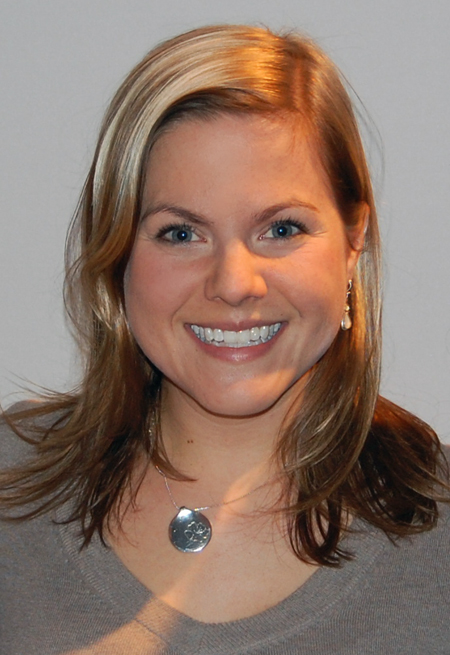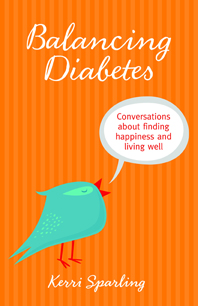Dialoging about Diabetes: PWDs Offer Ways to Improve Communication and Care #9 Kerri Sparling, author Balancing Diabetes and six
 As a diabetes educator/healthcare provider (DHCP) I’m observing that the rapidly growing world of the Diabetes Online Community, the DOC for short, is helping people with diabetes (PWD) and their loved ones find support and feel supported. People and their caregivers are connecting, building relationships and feeling more positive about the challenges of managing their diabetes. I’m delighted to see this trend!
As a diabetes educator/healthcare provider (DHCP) I’m observing that the rapidly growing world of the Diabetes Online Community, the DOC for short, is helping people with diabetes (PWD) and their loved ones find support and feel supported. People and their caregivers are connecting, building relationships and feeling more positive about the challenges of managing their diabetes. I’m delighted to see this trend!
As a DHCP I’ve long realized that I can’t walk a mile in a PWD shoes. I can’t know what it is like day in, day out to deal with this challenging and relentless disease. But, what I do know is that we can learn from each other to change the dialog between providers and PWD to be more positive, more supportive.
Goal one with these Dialoging about Diabetes interviews with diabetes activists is to help make living with diabetes…just a bit easier. Goal two is to enhance the two-way street – to help more PWD get connected and encourage more DHCPs to open the doors of social networking to PWD.
Here’s my dialog with Kerri Sparling, who’s had type 1 diabetes (T1D) for 27 years. Kerri jumped into the diabetes social networking world early on, in May of 2005 with her blog Six Until Me. She regularly contributes her personal thoughts in her column SUM Musings in the D-newsletter diatribe. She’s been an active member of the ever-expanding Diabetes Online Community (aka The DOC) and a diabetes advocate. Now Kerri has authored a book, Balancing Diabetes. Kerri’s book offers her account and the accounts of others, mainly those with T1D, who work to balance diabetes everyday through all the ins and outs of daily life. Read my review of Balancing Diabetes on amazon and consider purchasing a copy of the book from my amazon a-store. Below enjoy Kerri’s responses to my questions about Balancing Diabetes, her life and the Diabetes Online Community.
HW Q: You were among the first diabetes bloggers in the early days of blogging. Why did you start a blog? 
KS A: I was diagnosed with type 1 diabetes in 1986, and my parents were quick to send me to diabetes camp so that I could connect with and learn from others who shared this diagnosis. But after I aged out of camp, there was a long stretch of time where I was the only person with diabetes that I knew, and it felt very isolating. I would Google “diabetes” and a long list of diabetes-related complications and reasons why my life would be compromised greeted me in the search return. At the prompting of my then-boyfriend (and now husband), I started a blog in hopes that someone else might be looking for a person living with, and not dying from, diabetes. Within a week of writing my first post, I found two or three other diabetes bloggers. And now, almost ten years later, to my delight there are way more diabetes voices to count. It’s an inspiring and supportive network that I’ve had the honor of watching come into bloom over the last decade.
HW Q: How did you initiate and evolve the persona of your blog? It’s unique, from the heart and seems so you!
KS A: There wasn’t much strategy in creating the voice for my blog; it’s my voice, and for better or for worse, I can’t change it. I write what I feel, and how I feel it. I wanted to share what life with type 1 looked like in the context of life and not commercials or marketing campaigns designed to shame or incur pity. I wanted to write my blog to chronicle my diabetes reality, in hopes of finding others who understood. I was tired of feeling alone.
HW Q: Why did you write Balancing Diabetes? Why did you choose to bring in stories and accounts from others with diabetes, yours and their spouses, siblings, parents, etc?
KS A: Life with diabetes isn’t about the diabetes itself, but about the life it’s a part of. There is a life to be found after diagnosis, and it's a good one. Being able to take a blood sugar and remove the blame and guilt from that result, focusing only on the actions needed to correct that number or duplicate it? Viewing diabetes as something that doesn’t define you, but instead simply serves to explain why glucose tabs live in your glove compartment and there is a pile of used test strips on the floor by your bedside table. Being active and involved in a life that isn’t ruled by insulin but is instead fueled by it? And realizing that diabetes isn’t something we can perfectly control, but we can do our best to manage it? That’s the balance I seek. I wanted to write book to shine a spotlight on that journey. This book is for the community of like-pancreased people who work hard to make diabetes a part of their bigger whole life. Diabetes is not a disease I manage on my own, which is why I wanted to bring in some voices from my own caregivers, as well as the caregivers and perspectives of other people with diabetes. Balancing Diabetes is not a “how to” book. The key message is more “keep at it.”
HW Q: What in your heart do you want your book(s) to convey to PWD and caregivers?
KS A: I really want this book, and all of my writing, to speak to the everyman with diabetes. Managing blood sugars and lab work is just a small part of balancing this disease, and I wanted to draw focus to the emotional support that is given, needed, and wanted for and by the diabetes community. I want people who are touched by diabetes to feel less alone, and to feel like diabetes is something they can handle, even on the days when it feels potentially overwhelming. HW Q: You share quite personally in your blog and in your book your challenges with diabetes complications, specifically with your eyes. What are a few words of wisdom about dealing with complications?
HW Q: You share quite personally in your blog and in your book your challenges with diabetes complications, specifically with your eyes. What are a few words of wisdom about dealing with complications?
KS A: I wanted to talk about my eye complications because it’s what is really happening. And even though I don’t want people thinking that diabetes complications are necessarily a guarantee, they also aren’t a mark of failure. I work hard to manage this disease. I will keep trying, even though I know there will be more radar blips, and more moments that cause momentary tears but then renewed determination. There’s so much personal responsibility, so many moments of, “Well, you have the tools to manage this disease, so why aren’t you hitting the mark?” Diabetes is unique, in that way, with complications often viewed as a result of the person with the disease not working hard enough, when in fact, they are and the complications are just the result of diabetes. I want to empower people with diabetes to view complications as something to not make them give up or give in, but to push them to work harder, if they can.
HW Q: What are your learnings and messages to us diabetes healthcare providers (DHCPs) about helping people with diabetes and their caregivers balance diabetes during the ins and outs, ups and downs of life?
KS A: The healthcare provider/patient relationship is a delicate one. What seems to be missing, from my admittedly oscillating perspective, is respect for all parties on all sides. I need to be more respectful of my healthcare providers’ time, education, and opinion, and they need to be respectful of the exact same things for me. One HCP doesn’t make or break my perspectives on how all HCPs conduct themselves, just as one person with diabetes doesn’t speak for us all. I am the expert on MY own diabetes care, but there is no way I can claim to be the expert (or even remotely knowledgeable) on all things diabetes. I have made many mistakes along the way, both in how I manage my diabetes and how I interact with my medical team, but I have to allow myself the chance to learn from those mistakes. Same goes for my HCPs.
HW Q: How do you feel you’ve been able to take the lemon of developing diabetes and turn this diagnosis into lemonade in your life?
KS A: This is a loaded question, because I don’t really do the whole “lemonade” thing when it comes to diabetes. I wish I did, but if I claimed to, I’d be lying. Diabetes is something I would give back in an instant, despite what I’ve learned from it. I would ship it back happily, even though it’s brought me as many opportunities as it’s taken throughout the years. I don’t like it. But I respect it.
HW Q: How have you seen the DOC evolve over the years? How would you like to see the DOC evolve over the next five, ten years?
KS A: The DOC has gone from a small pocket of voices to an entire choir that can’t be housed in one town, or state, or even country. I love seeing more hands raised and more people saying, “Me, too!” and providing support and understanding for one another. I’d like to see the DOC become more diverse, more inclusive, and more action-oriented, moving these online conversations to offline endeavors, making a tangible difference in the world of diabetes. I’ve seen the start of this kind of change, and the tides are rising beautifully. And with it go all of our boats.
HW Q: How can people connect and follow you online?
KS A: Thanks for asking! My blog is at www.SixUntilme.com, I’m on Twitter at @sixuntilme, and my Facebook page is www.Facebook.com/sixuntilme. And thanks for highlighting my book. I really appreciate it.
Kerri, And I appreciate YOU!.! Your words are simple and they flow, but they are deeply meaningful and profound to me as a diabetes educator. Hopefully they are as well to both HCPs and PWDs. Thanks so much for writing Balancing Diabetes. I thank you for all of your activism and advocacy in support of people with diabetes! Onward!

